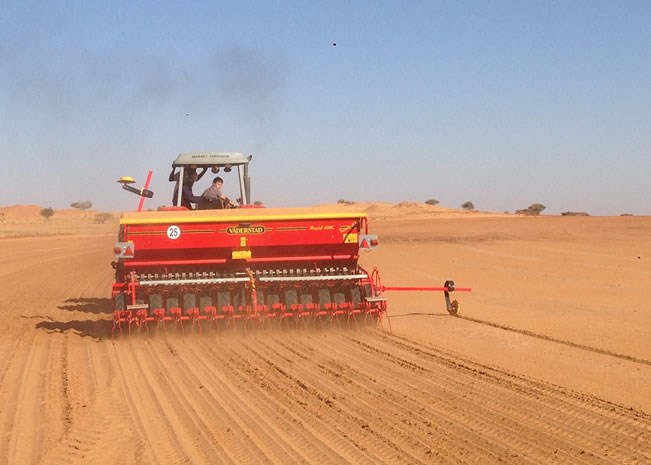CROP ROTATION
To ensure that the land is continually fertile, GLB Invest rotates the planting cycle between alfalfa and other crops on a seasonal basis.
Rotation ensures that the minerals and nutrients in the soil are never leached away and allows the soil to retain nitrogen, an element crucial to the healthy growth of plants. Besides improving the management of the soil’s fertility, crop rotation helps avoid, or at least reduces problems with soil-borne diseases and some soil-dwelling insects.
The first rotational crop to be planted is Rhodes grass. Native to Africa, Rhodes grass is a robust plant, able to survive and thrive in demanding environments. Resistant to water shortage, harsh climates and animal grazing, Rhodes grass is a hardy, low maintenance plant, ideal for use in crop rotation.
Crops such as corn, sesame or others will be included at later rotational stages.

